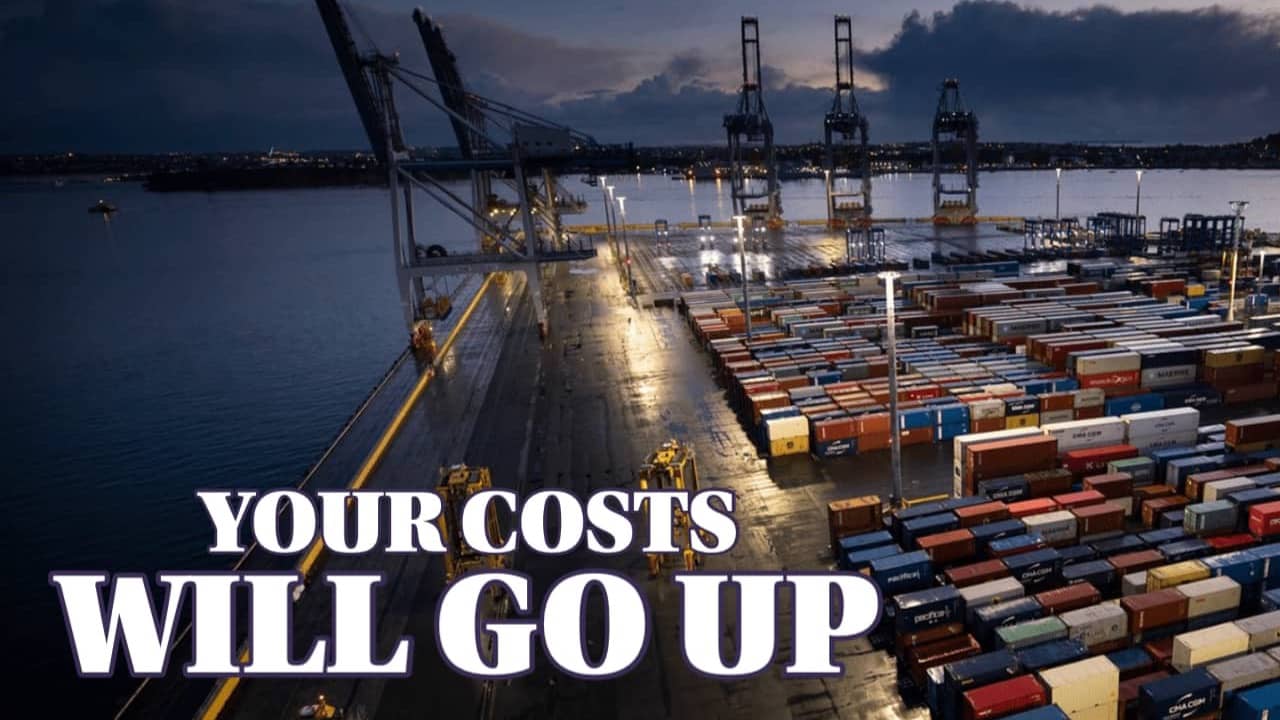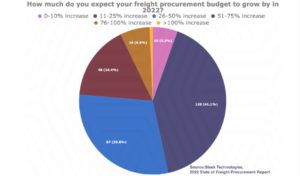
Freight Budgets Ramped Up Amid Record Profits for Shipping Firms
2-minute read
According to a survey, almost all firms are raising freight procurement budgets, and some are doubling them amid spiralling shipping costs.
A report by Sleek Technologies said 97% of firms planned to increase freight procurement budgets in 2022 for reasons including better managing capacity, increased agility, bolstering cost management and delivering better overall results.
29.8% of participants planned to raise budgets by 26-50%, compared to 2021, while 16.4% planned a rise of 51-75% and 6.5% a 76-100% increase.
“These findings illustrate just how competitive the freight procurement space has become over the last 18-24 months,” said the report.

“Some shippers have ramped up their transportation budget because they experienced massive budget overages in 2021 and anticipate similar freight market conditions for 2022.”
“While other shippers have plans to invest in innovative technology that automates a static tender process to mitigate rising shipping costs and empower their transportation teams to avoid costly spot market.”
The results come after the British International Freight Association (BIFA) called for an investigation into the container shipping market, citing figures that show the leading shipping companies made profits of $150bn in 2021, “more than has been achieved in the previous 20 years combined”.
In a letter to the UK Department for Transport seeking an inquiry, BIFA said in 2015 there were 27 major container shipping companies, with the largest having a 15.3% market share.
“Today, there are 15 shipping lines, organised into three major alliances carrying that trade, with some analysts observing that the market share of a single alliance on certain key routes could be over 40%,” said BIFA director general Robert Keen.
“The pandemic has highlighted and accelerated this development, which has also contributed to dreadful service levels, and hugely inflated rates, with carriers allocating vessels to the most profitable routes with little regard to the needs of their customers.”
Sleek Technologies, which surveyed 300 freight procurement decision-makers at large companies, including manufacturers and retailers, found that 30% said freight procurement and transport management accounted for more than 10% of their total cost of goods sold.
The most common issues among respondents were cost control (66%), on-time delivery (65%), and high primary rejection rates (46%), where contracted carriers reject loads and buyers must seek alternatives.
“Unfortunately, costs will continue to climb until contracted carriers level-set pricing. Until then, contracted carriers will reject loads, pushing freight into the costly spot market, resulting in higher prices and poor service,” said the report.
Source: CIPS (Chartered Institute of Procurement & Supply) and Sleek Technologies
P.S. Easy Freight Ltd helps New Zealand importers & exporters to save money on international freight and reduce mistakes by guiding how to comply with Customs and biosecurity rules.
➔ Contact us now to learn how we can assist you.
